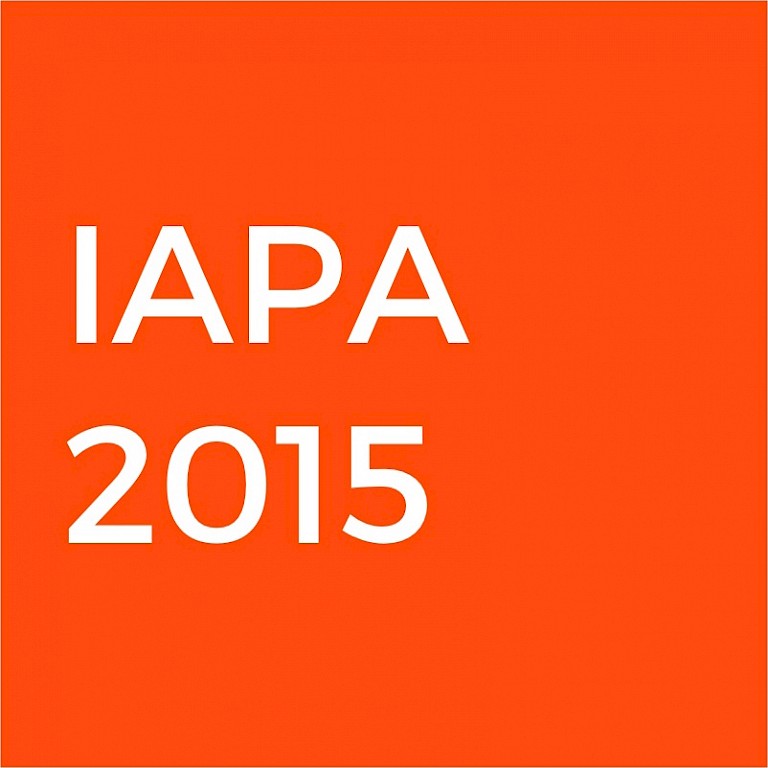



The architecture of Open Cinema took the form of a steel box elevated by 1.2m on four legs, housing 16 yellow tubes. The tubes opened into sound-absorbent cork interiors, acoustically isolated from the environment, and equipped with a screen and a surround sound system. Each pod accommodated up to three spectators at a time, allowing audiences to view the program individually or in intimate groups. Visually, the structure, when fully occupied by viewers, took on the appearance of a many-legged semi-human machine. Sited in Largo Condessa do Juncal, a popular public space in the old town of Guimarães, the bright coloration of each of the tubular openings, as well as the strangeness of the whole form, lent themselves to playful exploration by passersby.
The programming was based on research into local working classes. Lewandowska was interested in “what Guimarães, as Capital of Culture, meant to the workers in their daily lives.” Consequently, she invited workers in local manufacturing industries (textiles and shoes) to participate in the curation of the screenings, which turned out to be a series of trailers of films memorable to individuals and their families. Workers selected the trailers in screening workshops during lunch hours by voting. Trailers, of around three-minutes in length, for films such as La Dolce Vita, Citizen Kane, ET, and Apocalypse Now, among others, thus became the content for Open Cinema.
As a temporary installation and event based on understanding the meanings of pre-existing cultural initiatives (such as the Cine Club of Guimarães), the project successfully aligned itself with contemporary currents of enthusiasm for film and politics, thereby engaging up to 18,000 residents and visitors (according to information from the organizers) over its 75-day duration. 18,000 visitors is quite a remarkable number given that the population of Guimarães itself stands at little over 50,000. This attention to history and the importance of established social relations and dynamics no doubt contributed to the success of Open Cinema as a placemaking initiative, together with the decision made to work with communities disillusioned by globalization (meaning the outsourcing of manufacturing to countries with lower labor costs, for example, in East Asia) as a deliberate act of generosity.
For Lewandowska and Fournier, “Social participation, openness, and generosity offer a counter position in setting up alternative approaches to art production and participation, in a contemporary culture of commerce and consumption.” The search for alternatives to unsustainable late capitalist modes of social organization and life is extremely topical, given that the advent of late capitalism has meant the emergence of a new class of peoples, a ‘precariat’ whose common experience is one of financial instability, job insecurity, and generally precarious existential circumstances. Open Cinema is an exemplary model of how small groups of people, from very different worlds and circumstances, may come together in a life affirming artistic event within a temporal territory that is not subject to the norms of property ownership, but functions rather on the logic of generosity and reciprocity.
All copyright belongs to Shanghai Academy of Fine Arts, Shanghai University.



